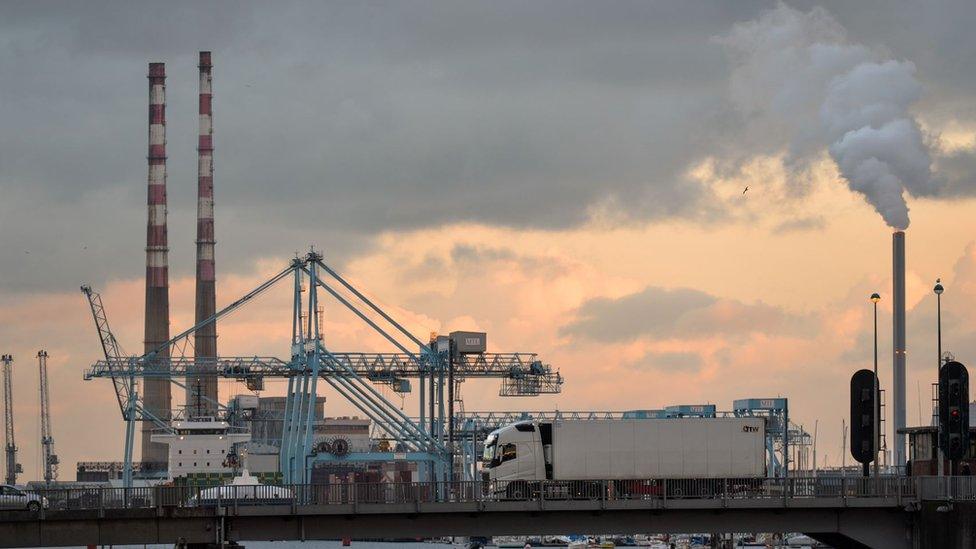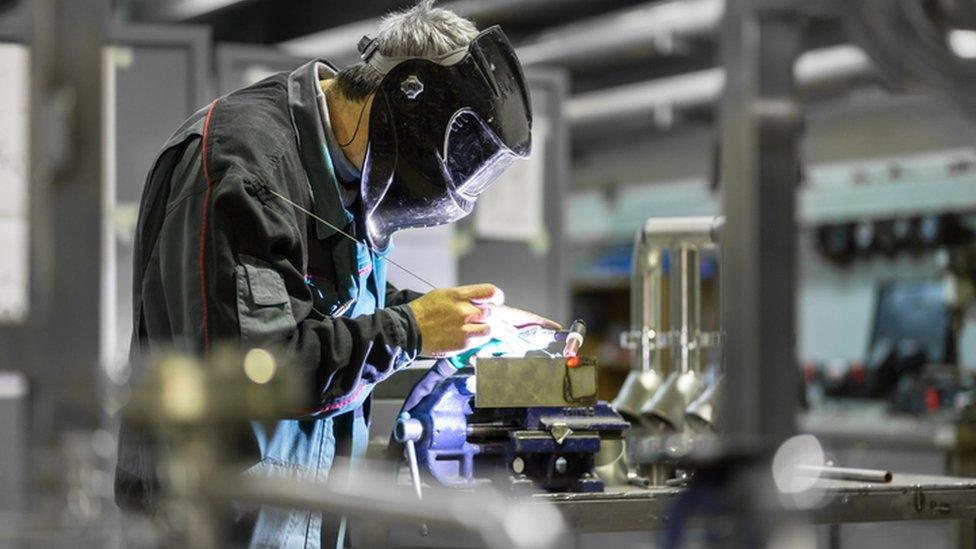Brexit: Export issues ‘easing at Irish ports’
- Published

Post-Brexit difficulties in getting British exports through Irish ports have eased but complexities remain, Irish officials say.
Senior civil servants from customs, agriculture and public health were giving evidence to the Seanad Special Select Committee.
Earlier this year, hauliers complained the new Irish customs IT system was slow and unreliable.
Britain and Ireland are major trading partners in food and drink.
Gerry Harrihill, director general of customs, said that after suffering 'performance degradation' the new system had been performing well since mid-March.
'Incredibly complex processes'
Official figures show the value of British exports to Ireland in January and February was down by around £1.5bn compared to the same period last year.
Some of the decline was down to stockpiling and the impact of the pandemic.
Food products face the greatest level of new checks and controls when moving from Britain to Ireland.
Hazel Sheridan, from the Department of Agriculture, said that while there have been lots of improvements the processes remain 'incredibly complex.'
She said a continuing issue for her staff was errors in the export health certificates (EHC) which must accompany products like meat and dairy products.
She pointed to particularly difficulties at evenings and weekends when the UK supplier may not be available to rectify any problems with their paperwork.
Currently Irish products going to Great Britain do not require EHCs but that is due to change in October when the UK belatedly introduces border controls.
Louise Byrne, from the Department of Agriculture, says that currently around 70,000 EHCs a year are issued to Irish companies for exports outside the EU.
That will increase fourfold when the UK border controls start.
Related topics
- Published7 May 2021

- Published2 February 2024

- Published9 February 2021
